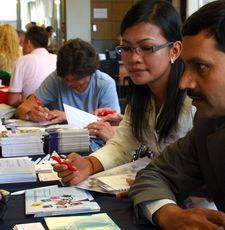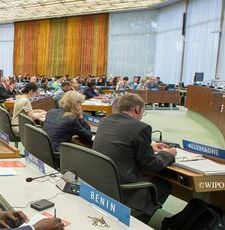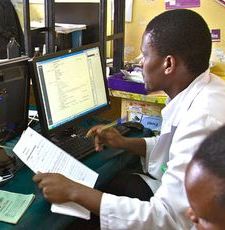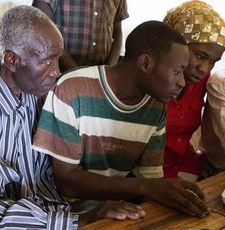ABOUT THE RESOURCE
In 2011-2013 EIFL provided financial support to 34 projects that implemented national and institutional open access (OA) advocacy campaigns to reach out to research communities and OA publishing initiatives.
Through small grants and support from their own institutions, the projects engaged in a wide variety of campaigns and activities, including: holding workshops, creating websites, building institutional OA repositories, creating e-learning courses, and implementing OA publishing platforms.
The case studies resulting from the projects reveal impressive first-time achievements and will help increase the availability of research literature in developing and transition countries.
Learn more about the key achievements for this national OA campaign in Belarus below. You can access the full case study (strategies, tactics and tools, success stories and lessons learnt) by clicking on the download button. You can also download a supplementary poster of the project results here.
About the project in Belarus
In 2012, Republican Research-and-Production Unitary Enterprise "Diatech" (a leading OA publisher in the country) in partnership with the National Library of Belarus and the Belarus Council of Libraries on Information Cooperation (BelCoLib) implemented a project on building national communities of OA practitioners and decision-makers.
The main objectives of the project included: create a nationwide community website to showcase and support communication and collaboration across universities and scholarly societies involved in the OA movement; promote sharing information and expertise on OA; and support cross-institutional linking between researchers and projects with shared interests.
Key Achievements
-
The Belarusian national OA website, www.openaccess.by, launched. The website brings together a wide variety of OA information sources into one website thereby making it easier to find relevant resources and to promote OA activities across Belarus. A core group of proactive users has already formed around the OA website; they regularly update the website with news and events and advocate for OA in the country.
-
Over 350 researchers, research administrators, journal editors and publishers and librarians attended the project workshops and seminars. They had the opportunity to get practical experience on different aspects of OA initiatives, participate in the discussions and have started working as OA advocates in their institutions.
-
Important collaborations across national stakeholders involved in OA activities were formed, including a successful partnership with the largest and most popular Belarusian portal, tut.by, and a strategic cooperation with the National Commission of UNESCO in Belarus.
-
A national Open Journal Systems (OJS) platform was set up and one journal (plib.unibel.by/index.php/nkid - Неразрушающий контроль и диагностика) has already moved to this platform. Several other scholarly journals expressed an interest to join. In addition, some of the libraries that have periodicals in their collections are planning to host them on the OJS platform in order to improve discoverability.
-
Belarusian State University of Informatics and Radioelectronics and International State Ecological University named after Andrew Saharov have started setting up OA repositories (using DSpace FOSS platform, to be launched in 2013) and are currently working on the repository policies and regulations.
-
A national harvester (metadata indexing system to expand and improve access to research in OA journals and OA repositories) was set up at the Analytical Centre of the Ministry of Education of Belarus (metaport.unibel.by).
“Open academic environment is one of the main factors for successful scholarly communication in Belarus. It is very important for all of us involved in research and education to remove existing barriers and let knowledge become a real power.” - Vladimir Krasovski, Vice-rector, International State Ecological University named after Andrew Saharov
SHARE / PRINT









